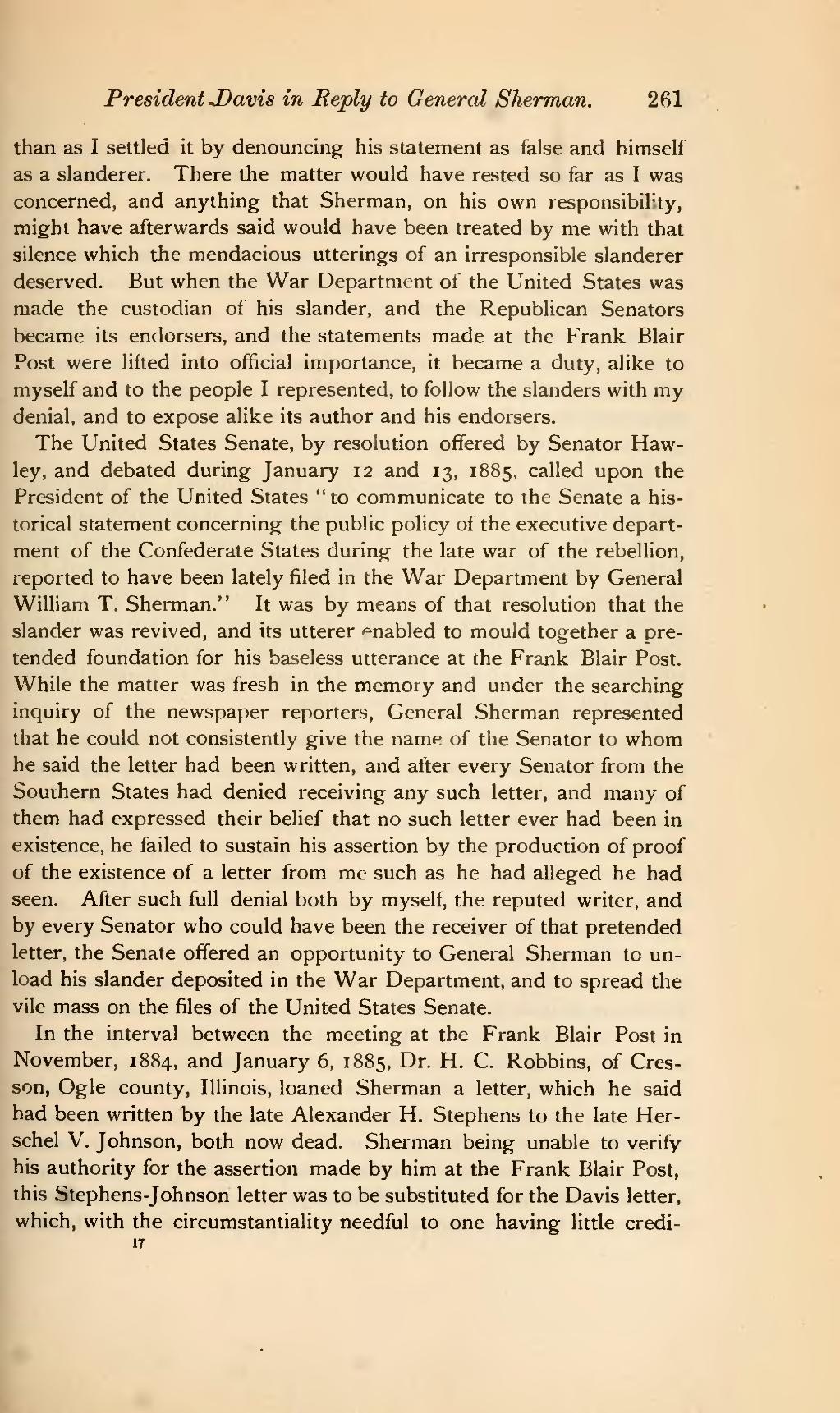than as I settled it by denouncing his statement as false and himself as a slanderer. There the matter would have rested so far as I was concerned, and anything that Sherman, on his own responsibility, might have afterwards said would have been treated by me with that silence which the mendacious uttering of an irresponsible slanderer deserved. But when the War Department of the United States was made the custodian of his slander, and the Republican Senators became its endorsers, and the statements made at the Frank Blair Post were lifted into official importance, it became a duty, alike to myself and to the people I represented, to follow the slanders with my denial, and to expose alike its author and his endorsers.
The United States Senate, by resolution offered by Senator Hawley, and debated during January 12 and 13, 1885, called upon the President of the United States "to communicate to the Senate a historical statement concerning the public policy of the executive department of the Confederate States during the late war of the rebellion, reported to have been lately filed in the War Department by General William T. Sherman." It was by means of that resolution that the slander was revived, and its utterer enabled to mould together a pretended foundation for his baseless utterance at the Frank Blair Post. While the matter was fresh in the memory and under the searching inquiry of the newspaper reporters, General Sherman represented that he could not consistently give the name of the Senator to whom he said the letter had been written, and after every Senator from the Southern States had denied receiving any such letter, and many of them had expressed their belief that no such letter ever had been in existence, he failed to sustain his assertion by the production of proof of the existence of a letter from me such as he had alleged he had seen. After such full denial both by myself, the reputed writer, and by every Senator who could have been the receiver of that pretended letter, the Senate offered an opportunity to General Sherman to unload his slander deposited in the War Department, and to spread the vile mass on the files of the United States Senate.
In the interval between the meeting at the Frank Blair Post in November, 1884, and January 6, 1885, Dr. H. C. Robbins, of Cresson, Ogle county, Illinois, loaned Sherman a letter, which he said had been written by the late Alexander H. Stephens to the late Herschel V. Johnson, both now dead. Sherman being unable to verify his authority for the assertion made by him at the Frank Blair Post, this Stephens-Johnson letter was to be substituted for the Davis letter, which, with the circumstantiality needful to one having little credi-
